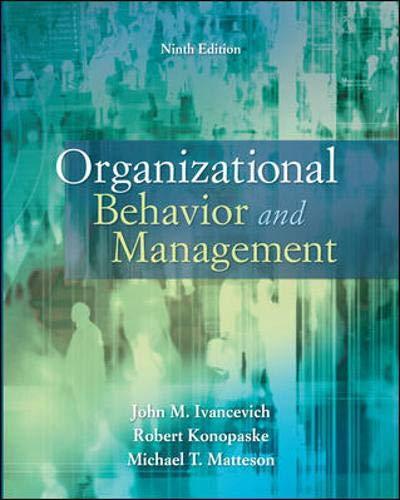The second week of January at Baruch High School in Manhattan, teenagers are noisily making their way
Question:
The second week of January at Baruch High School in Manhattan, teenagers are noisily making their way to and from class. On the street below, a siren blares through Union Square. And in a classroom on one of the floors of the high school, musicians are sight-reading a piece of music. After several frustrating attempts, cellist Melissa Meell finally stops and shrugs her shoulders. “We’re a long way from Carnegie Hall,” she quips.
That kind of wisecrack would be typical of a clever 12th-grader who’s struggling through her first Mozart symphony, hoping to ace her audition for all-city orchestra and get a crack at playing on the stage of that revered concert hall. But, in fact, Meell is 44, a professional musician, and a member of Orpheus—a Grammy-nominated chamber orchestra that’s widely considered one of the best of its kind on the planet. Although she and her fellow musicians are just 19 days away from their next Carnegie Hall performance, they still sound as if they’re playing rubber bands.
With such an imposing deadline at hand, why is this prestigious group of musicians rehearsing in such noisy surroundings? The school, it turns out, is its home. Orpheus has been the orchestra in residence at Baruch High School for more than three years and at Zicklin School of Business, which is affiliated with New York City’s university system, since September 1999. Orpheus is a conductorless orchestra, and it was for that very reason that Baruch wanted the orchestra to take up residence there—so that students could watch Orpheus rehearse and observe firsthand how it uses collaboration and consensus-building to settle its creative differences. High school students would get a living lesson in conflict resolution. And business students, who would soon be working in a world where few people believe that a CEO has—or should have—all of the answers, would learn that self-governance makes a worthwhile model and that leadership is most effective when all levels of an organization have input.
Its self-governing and leadership abilities have made Orpheus more than just a group of gifted musicians.
Orpheus has actually become a metaphor for structural change—the kind of change that has bedeviled so many big companies and exasperated so many big-company CEOs. Orpheus’s founder, Julian Fifer, 49, first became aware of the group’s metamorphosis when a chairman of a large Japanese publishing company approached him several years ago. “He told me how much he had enjoyed our concert,” Fifer recalls. “But then he confided that he didn’t want his employees to discover us.” Fifer was amused—and intrigued: If old-line business leaders resisted their self-governing process, presumably there were corporate mavericks who would find it compelling. That assumption proved to be correct.
Several large companies, including Kraft Foods and Novartis AG, have hired Orpheus to demonstrate its process to their executives.
What do these executives find so compelling about Orpheus’s sound and system? To them, the group is a radical, ongoing experiment to find out whether grassroots democracy and commitment to consensus can lead to transcendental performance—or whether it will all end in organizational chaos and muddled results. So what is the key to the orchestra’s continued success? A set of insights about motivation, decision making, performance, and work that are as relevant in conference rooms as they are in concert halls.
Questions 1. What would business organizations such as Kraft Foods gain from observing Orpheus in action?
2. Orpheus rotates the concertmaster position among core-group members. What is the logic of rotating the leader?
3. What are some of the substitutes for permanent leadership that exist within Orpheus?
Step by Step Answer:

Organizational Behavior And Management
ISBN: 9780073530505
9th Edition
Authors: John Ivancevich, Robert Konopaske, Michael T Matteson





